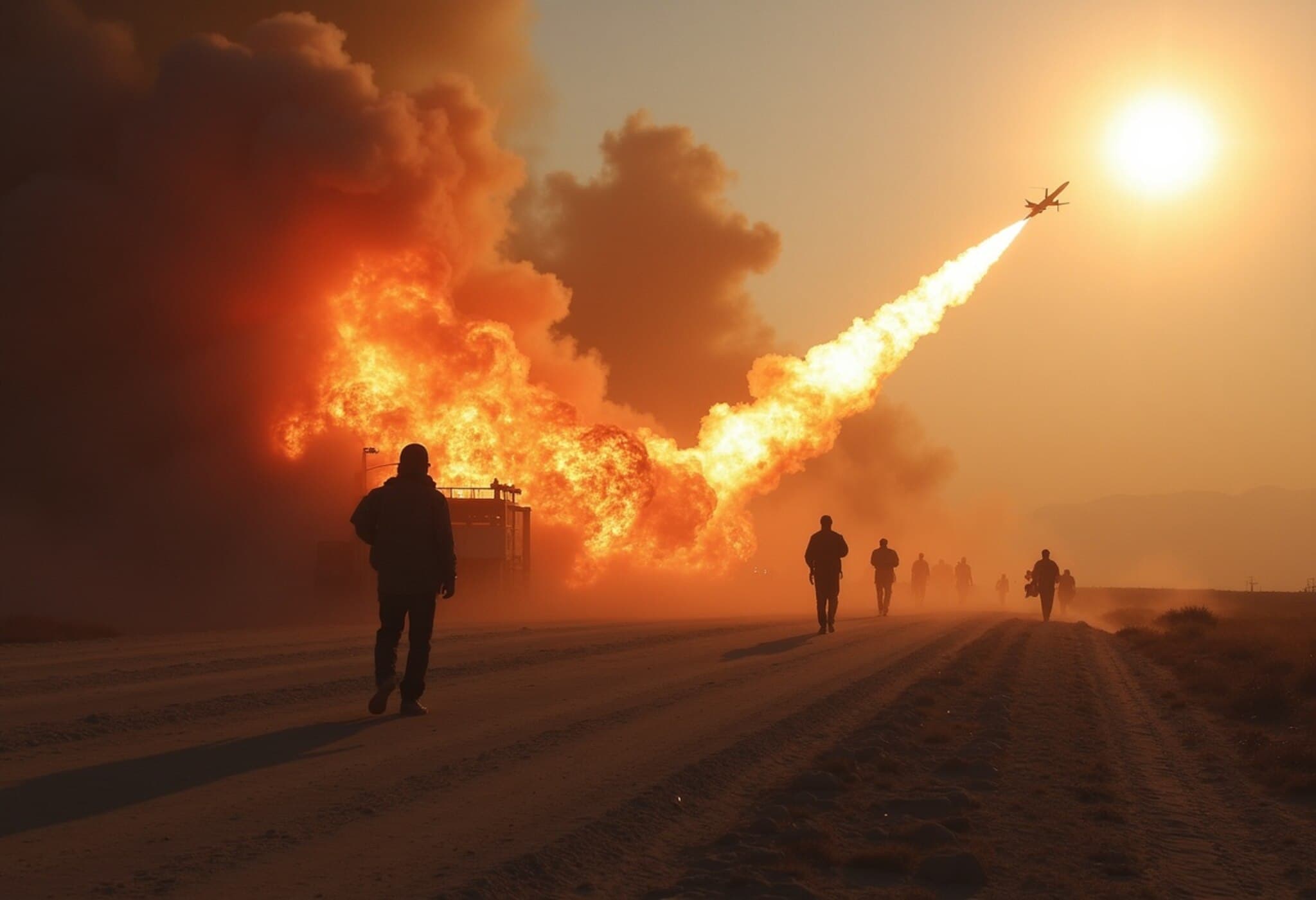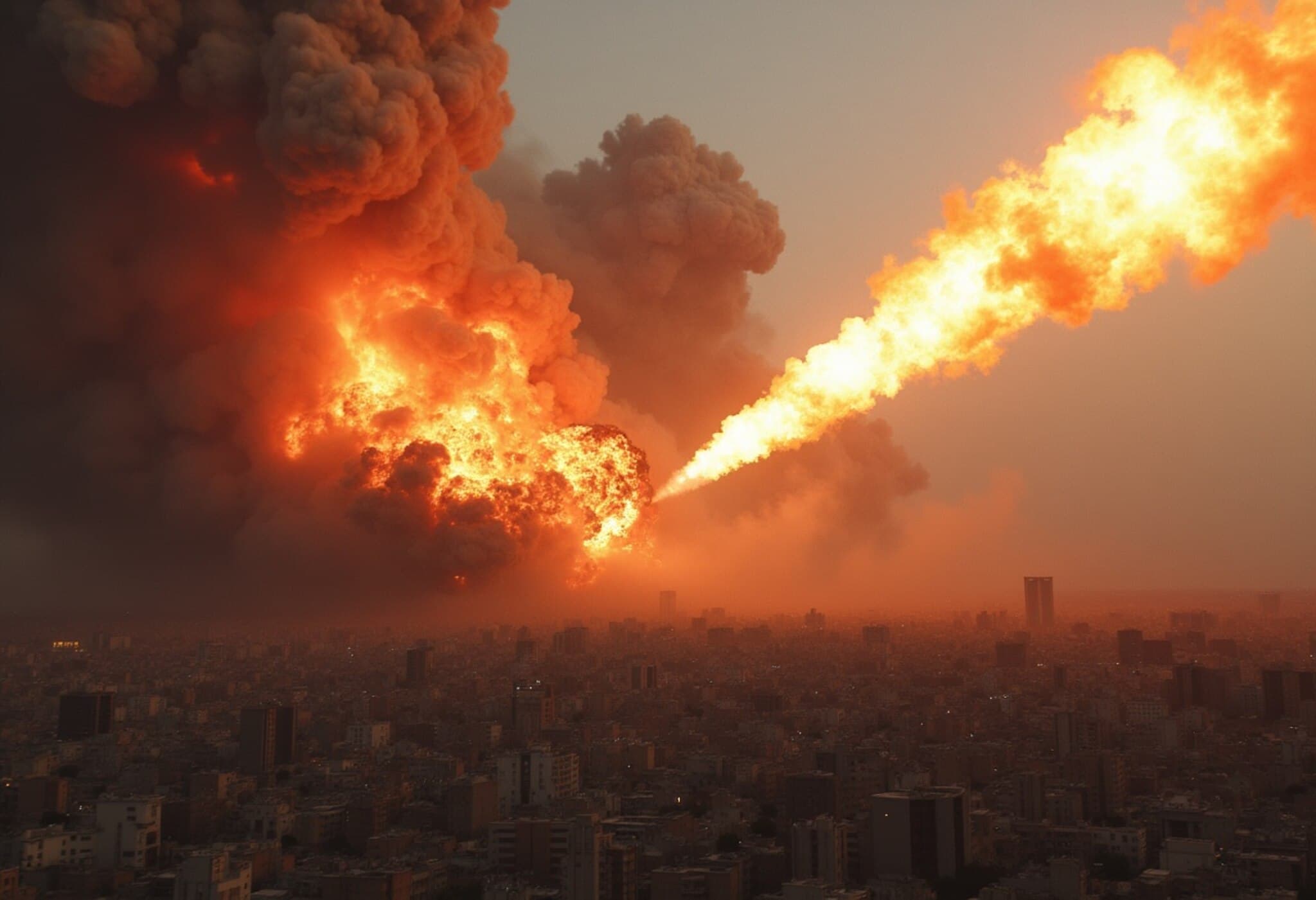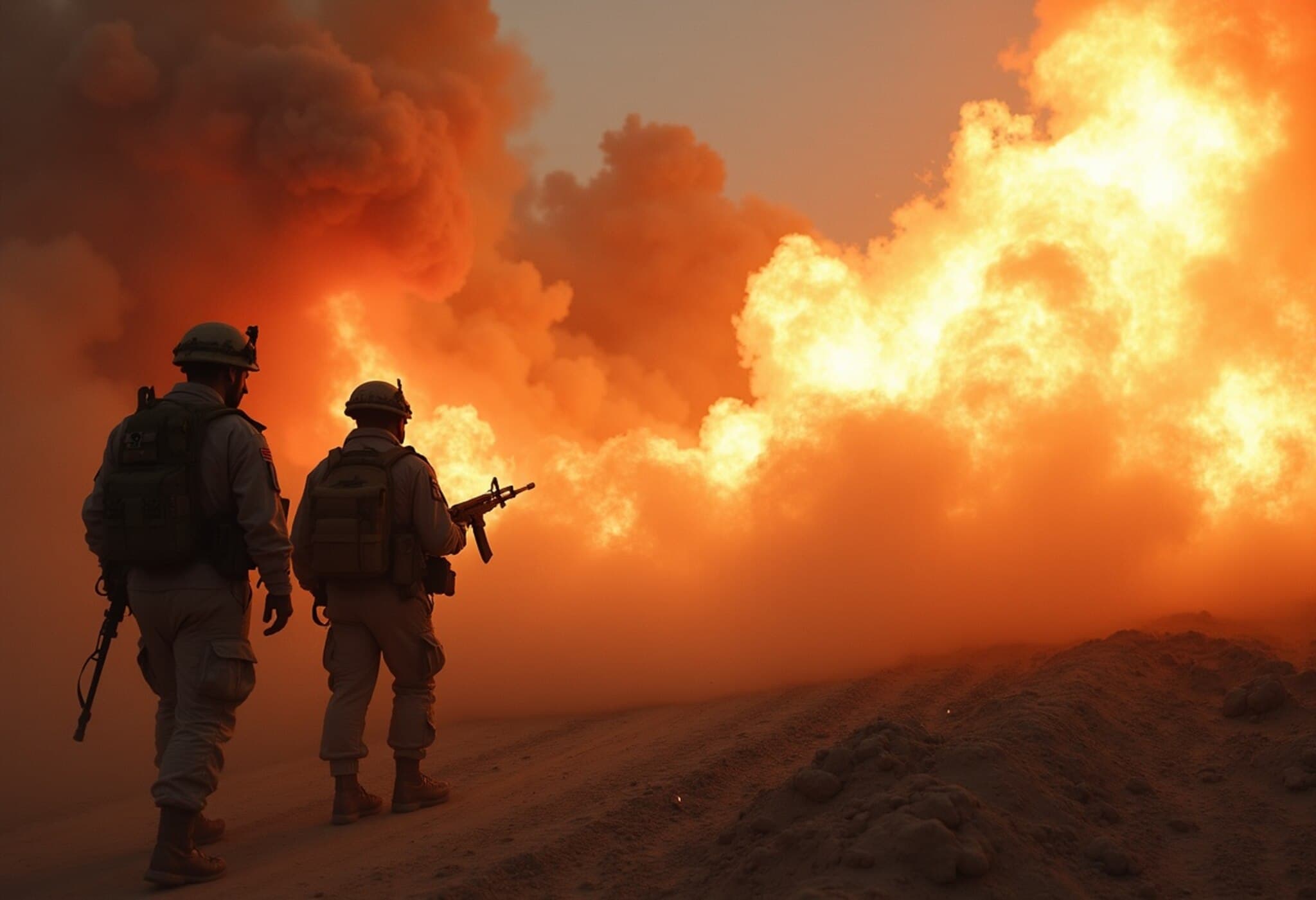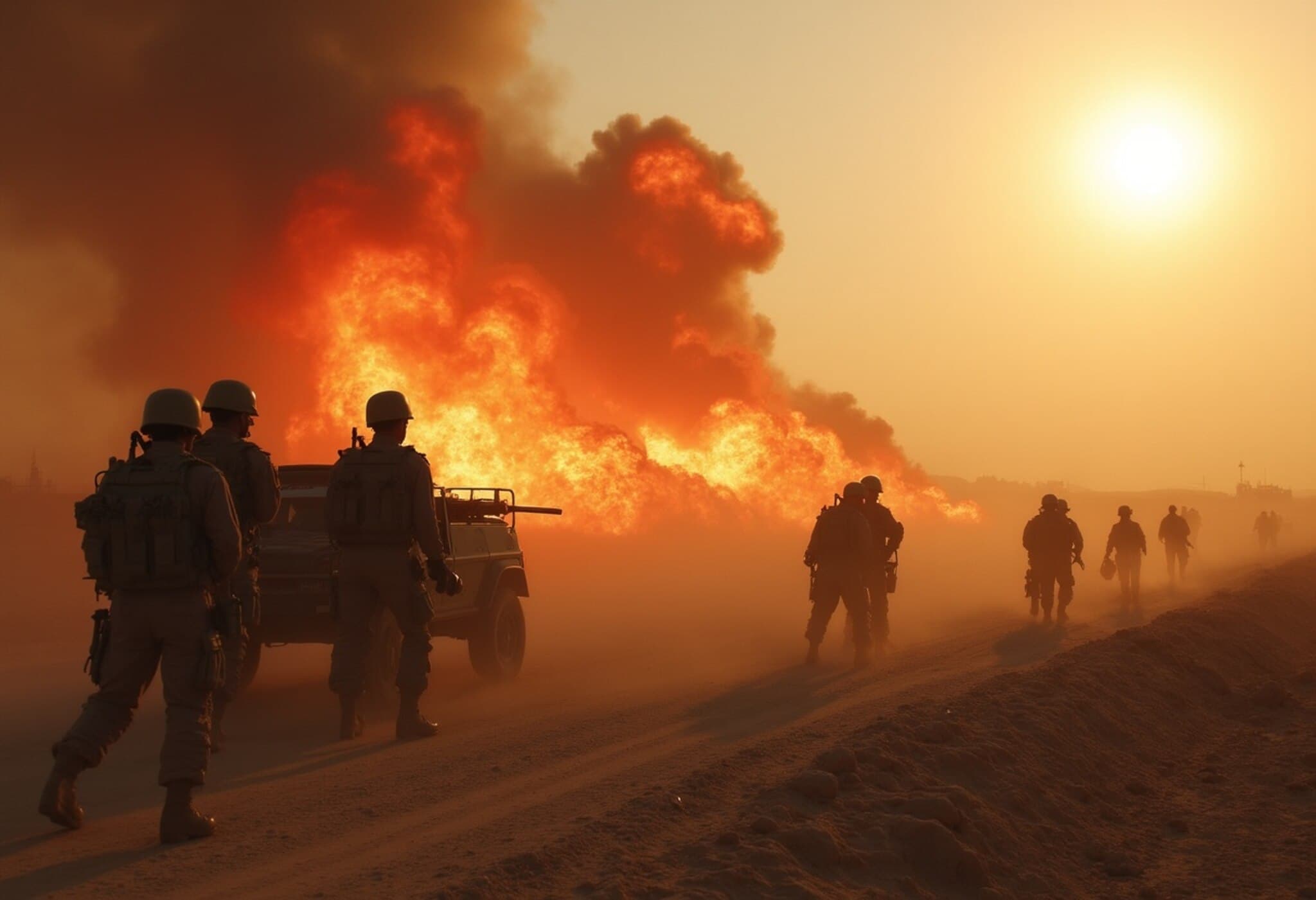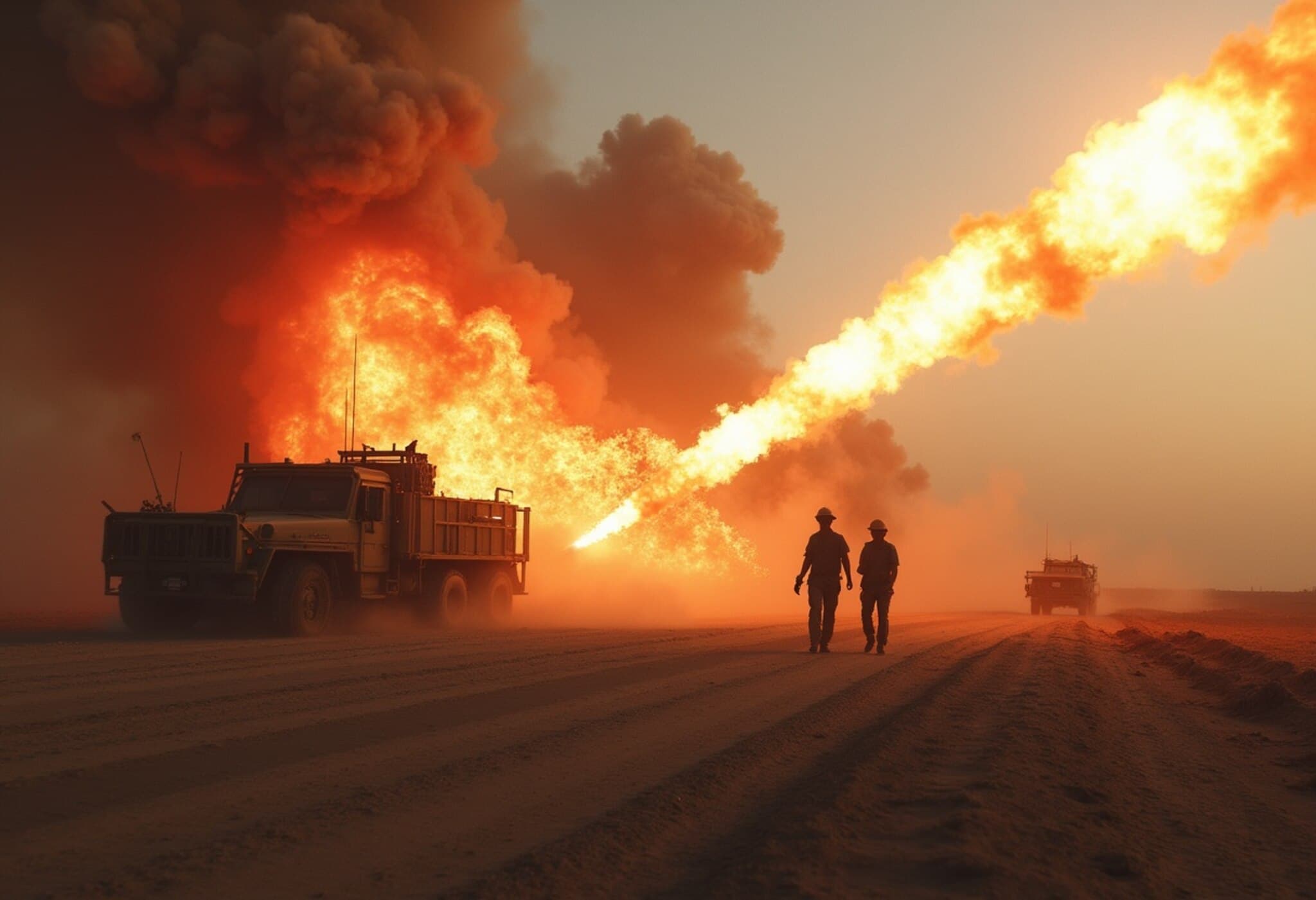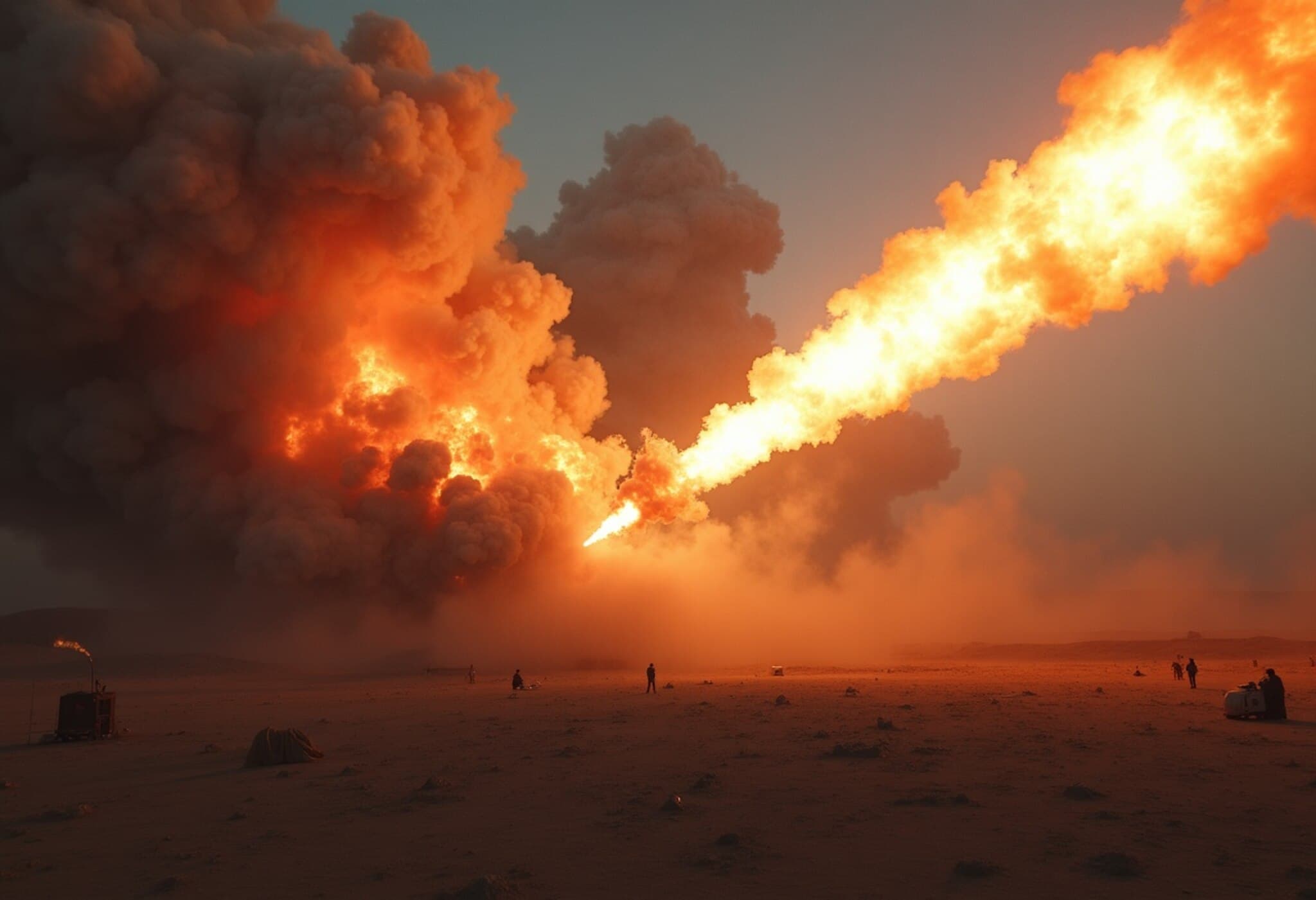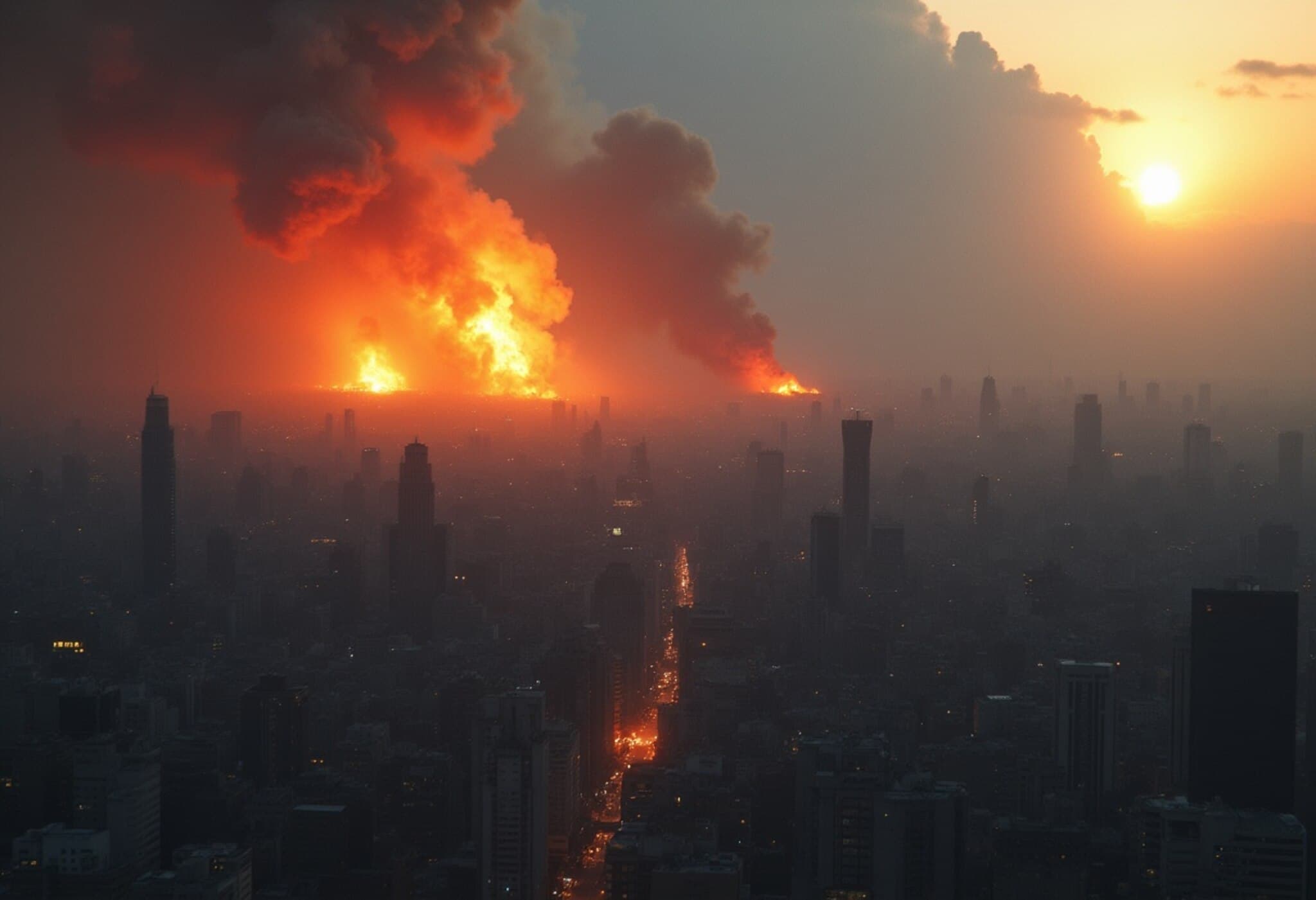Ceasefire Collapses as Israel and Iran Resume Missile Attacks
Despite a recent ceasefire agreement brokered amidst escalating tensions, hostilities between Israel and Iran reignited swiftly this week. United States President Donald Trump intervened, assuring the world that Israel would halt its military actions. However, the promise unraveled mere minutes after Trump’s declaration, as Israel resumed missile strikes against Iranian targets.
Trump’s ‘Plane Wave’ Strategy Falls Short
In a surprising twist, President Trump took to social media to downplay the renewed conflict, stating that Israel would perform a harmless “friendly plane wave” over Iran instead of launching attacks. He emphasized, “Nobody will be hurt, the Ceasefire is in effect!” Yet, this optimistic assertion contrasted sharply with reports of explosions and missile exchanges between the two countries.
At a White House press briefing, Trump expressed visible frustration with Israel for violating the ceasefire terms, saying, “They violated it, but Israel violated it, too. I'm not happy with Israel.” He criticized Israel for launching strikes immediately after the ceasefire was announced, triggered by a single Iranian rocket that did not cause any damage.
Iran Claims Continued Nuclear Development Despite Strikes
In the aftermath of the ceasefire, Iran confirmed it sustained damage from recent attacks on its nuclear facilities. Mohammad Eslami, head of Iran’s Atomic Energy Organisation, assured that preparations were underway to quickly restore operations. He stated, “We have taken the necessary measures and are taking stock of the damage. Our strategy ensures production and services are not disrupted.”
Meanwhile, Iran’s Foreign Minister Abbas Araghchi maintained that Tehran would cease all offensive operations if Israel honored the ceasefire, a sentiment tentatively echoed by Israeli officials who reported having met their operational goals and were ready to pause hostilities.
Missile Barrages Continue to Escalate Tensions
Nonetheless, the fragile truce crumbled as sirens blared across northern Israel, warning of incoming missile attacks. Israeli military sources confirmed that Iranian missiles had crossed into Israeli airspace; two were intercepted, but the incident starkly underlined the precarious situation.
The cycle of retaliation highlights the volatility of the conflict and casts doubt on the sustainability of ceasefire agreements in this deeply entangled regional dispute.
Key Highlights
- President Trump promised Israel would refrain from attacks, suggesting a symbolic “plane wave” instead.
- Israel resumed missile strikes shortly after ceasefire announcements, citing Iranian provocations.
- Iran plans to quickly repair nuclear facilities after damage from recent airstrikes.
- Both sides signaled willingness to pause if the other upheld the ceasefire, but attacks persisted.
- Missile alerts and interceptions in northern Israel escalated tensions dramatically.
The ongoing standoff between Israel and Iran remains a complex and delicate geopolitical challenge, as ceasefire attempts continue to falter amid mutual suspicion and military retaliation.

